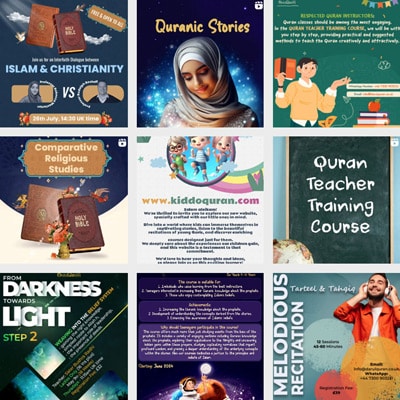“If anyone prays at night reciting regularly ten verses, he will not be recorded among the negligent; if anyone prays at night and recites a hundred verses, he will be recorded among those who are obedient to Allah; and if anyone prays at night reciting one thousand verses, he will be recorded among those who receive huge rewards”
Prophet Muhammad (S)
Table of Contents
ToggleDeveloping a good voice for Quran recitation requires understanding the nuances of Tajwid, proper pronunciation, and steady rhythm.
Practice regularly and seek guidance from experienced reciters. Use these tips to enhance your vocal quality and create a captivating Quranic experience.
The Importance of a Good Voice for Quran
A beautiful voice enhances the spiritual experience of Quran recitation .
It captures the attention of listeners, conveying the profound meanings of the holy text. A melodious voice adds emotion and depth, invoking a sense of reverence and enhancing the impact of the recitation.
Understanding the Nuances of Quranic Recitation
Quranic recitation requires a deep understanding of the rules of Tarteel (recitation) and Tajwid (The set of rules governing the way in which the words of Quran should be pronounced during its recitation.).
Study the different vocalizations, elongations, pauses, and intonations used in Quranic recitation. Apply these techniques to create a melodious and impactful recitation.

Developing Proper Pronunciation and Tajwid
Developing proper pronunciation and Tajwid goes beyond simply accurately pronouncing the Arabic words; it also encompasses intonation, rhythm, and melodies that make the Quranic recitation not only correct but also aesthetically pleasing to the listener.
In this essay, I will explore the historical context of Tajwid and its importance, identify key figures who have made significant contributions to the field, and analyze the impact of developing proper pronunciation and Tajwid for making one’s voice good for Quran.
Historical Context and Importance of Tajwid
Quran, considered to be the literal word of God as revealed to the Prophet Muhammad, is the central religious text of Islam.
The preservation of the sacred Quran’s original Arabic text and its accurate recitation has been a central concern for Muslims throughout history.
The art of Tajwid began during the lifetime of the Prophet Muhammad, who recited Quran with a melodious and perfect voice.
His companions, who heard the recitation directly from him, were keen on emulating his style and preserving the correct pronunciation and rhythm of Quran.
The significance of developing proper pronunciation and Tajwid for making one’s voice good for Quran lies in the belief that Quran should be recited with utmost respect and beauty.
Muslims believe that Quran is not just a book but the literal word of God, and as such, its recitation should reflect the divine nature of the text.
The correct pronunciation and application of Tajwid rules ensure that Quran is recited in the best manner possible, honoring its sacredness and delivering its message with eloquence and clarity.
Key Figures in the Field of Tajwid
Several influential figures have made significant contributions to the field of Tajwid, shaping its development and refinement over the centuries. One such figure is Imam Al-Jazari, a renowned Quranic scholar and expert in the field of Tajwid.
He is credited with standardizing the rules of Tajwid and developing a system of notation to accurately represent the pronunciation and characteristics of each letter in Quran.
His work has had a lasting impact on the study and practice of Tajwid, and his contributions are still widely respected and followed by scholars and practitioners of Tajwid today.
Another key figure in the field of Tajwid is Imam Shatibi, who further refined the rules of Tajwid and developed a comprehensive framework for the correct pronunciation and recitation of Quran. His work emphasized the importance of maintaining the original rhythm, melody, and intonation of the Quranic text, ensuring that its recitation remains faithful to its divine essence.
The Impact of Developing Proper Pronunciation and Tajwid for Making My Voice Good for the Quran
The impact of developing proper pronunciation and Tajwid for making one’s voice good for Quran is profound and far-reaching. Firstly, it allows for the accurate preservation of the Quranic text, ensuring that its original pronunciation and rhythm are maintained across generations. This serves to safeguard the integrity and authenticity of Quran, preventing any alteration or distortion of its sacred verses.
Furthermore, Tajwid has a significant impact on the spiritual and emotional experience of reciting and listening to Quran.
The melodic and rhythmic nature of Tajwid enhances the beauty and power of the noble Quranic recitation, creating a profound spiritual connection between the reciter and the text. This can have a transformative effect on the individual, fostering a deep sense of reverence, awe, and emotional resonance with the Quranic verses.
Moreover, developing proper pronunciation and Tajwid for making one’s voice good for the sacred Quran has a unifying effect on the global Muslim community.
universal adherence to Tajwid rules ensures that Muslims from diverse linguistic and cultural backgrounds can recite Quran in a harmonious and consistent manner, transcending geographical and linguistic barriers.
This contributes to a sense of unity and cohesion within the Muslim ummah, reinforcing their shared devotion to Quran as the central religious text of Islam.
Influential Individuals in the Field of Tajwid
Influential Individuals in the Field of Tajwid
Several influential individuals have contributed to the field of Tajwid, each leaving a lasting impact on its development and practice. One such individual is Sheikh Ayman Swayd, a contemporary Quranic scholar and reciter known for his mastery of Tajwid and melodious recitation of Quran.
Sheikh Ayman has dedicated his life to teaching and promoting the art of Tajwid, conducting workshops and classes for students and enthusiasts around the world.
His efforts have contributed to a renewed interest in Tajwid and nurtured a new generation of skilled reciters who are committed to upholding the traditions of proper pronunciation and Tajwid.
Another influential individual in the field of Tajwid is Sheikh Ahmad Al-Muqri, a renowned Quranic reciter and teacher who has made significant contributions to the study and practice of Tajwid.
His expertise in the intricacies of Tajwid has earned him widespread recognition and respect, and his dedication to preserving and promoting the art of Quranic recitation has inspired many to follow in his footsteps.
Sheikh Muhammad Nouh is also a prominent figure in the field of Tajwid, known for his exceptional ability to recite Quran with precision, passion, and elegance. His contributions to the field have had a profound impact on the development of Tajwid, setting new standards for excellence in Quranic recitation and inspiring others to strive for mastery in this art.
Perspectives on Developing Proper Pronunciation and Tajwid for Making My Voice Good for Quran
The significance of developing proper pronunciation and Tajwid for making one’s voice good for Quran is viewed from various perspectives within the Muslim community. From a religious standpoint, Tajwid is seen as a sacred duty and an essential aspect of upholding the integrity and majesty of Quran. It is considered a form of ibadah (worship) that requires diligence, reverence, and dedication to mastering the precise rules and characteristics of each letter and sound in the Quranic text.
In addition, developing proper pronunciation and Tajwid for making one’s voice good for Quran is also perceived as a means of spiritual refinement and personal growth. The discipline and attention to detail required in mastering Tajwid cultivates a deep sense of mindfulness, discipline, and humility, as individuals strive to perfect their recitation of Quran in accordance with its divine standards.
This process fosters a profound connection with Quran and facilitates a transformative spiritual experience, enriching the heart and soul of the reciter.
Furthermore, from an artistic and cultural perspective, Tajwid is celebrated as a rich and sophisticated tradition that encompasses the art of recitation, musicality, and linguistic beauty.
The rules of Tajwid are seen as a framework for elevating the Quranic recitation to an art form, where the nuances of melody, rhythm, and intonation combine to create a captivating and emotionally resonant experience for both the reciter and the listener.

On the other hand, some critics argue that the emphasis on perfecting Tajwid rules may lead to a rigid and overly technical approach to Quranic recitation, overshadowing the spiritual and emotive dimensions of the text. They contend that an excessive focus on correct pronunciation and intonation may detract from the genuine understanding and internalization of Quran’s message, resulting in a superficial and mechanical recitation that lacks true emotional and spiritual depth.
Future Developments in Developing Proper Pronunciation and Tajwid for Making My Voice Good for Quran
Looking ahead, the field of developing proper pronunciation and Tajwid for making one’s voice good for Quran is poised for continued growth and evolution. As technology and digital resources become increasingly accessible and advanced, there is a growing opportunity to develop innovative tools and platforms for learning and practicing Tajwid.
Mobile applications, online courses, and interactive software programs can provide a convenient and engaging way for individuals to study, refine, and perfect their Tajwid skills, regardless of their geographical location or available resources.
Additionally, the global Muslim community is witnessing a renewed interest and appreciation for the art of Quranic recitation and Tajwid. As a result, there is a growing demand for qualified teachers and instructors who can impart the knowledge and expertise of Tajwid to a new generation of students. T
his presents an opportunity for established scholars and practitioners of Tajwid to mentor and guide aspiring reciters, nurturing a diverse and dynamic community of individuals dedicated to the art of Quranic recitation.
Furthermore, the integration of Tajwid into academic curricula and educational institutions can help elevate the status of this discipline and instill a sense of pride and reverence for the art of Quranic recitation.
By including Tajwid as a formal subject of study in schools and universities, future generations can develop a deep understanding and appreciation for the intricacies and significance of proper pronunciation and Tajwid, ensuring its continuity and preservation for years to come.
The Role of Practice in Improving Your Voice
Consistent practice is key to improving your Quranic voice. Dedicate regular time to recitation exercises, focusing on the correct application of Tajwid rules and developing a clear and melodious tone.
Gradually increase the difficulty level and challenge yourself to recite with greater fluency.
Tips for Improving Your Vocal Quality
Enhance your vocal quality for the sacred Quran recitation with these tips:
Reciting the Holy Quran is a sacred act that requires not only understanding and memorisation but also a beautiful vocal quality. A melodious voice can enhance the spiritual experience for both the reciter and the listener.
Here are some tips to improve your vocal quality for reciting the Holy Quran.
Focus on proper pronunciation. Each letter in Arabic has its own unique sound, and mastering these sounds is crucial for accurate recitation. Practice pronouncing each letter correctly, paying attention to its articulation and duration.
work on your breath control. Proper breathing techniques allow you to sustain long phrases without running out of breath. Practice diaphragmatic breathing by inhaling deeply through your nose and exhaling slowly through your mouth.
Develop a sense of rhythm. Recitation of the noble Quran follows specific rhythmic patterns known as Tajwid rules.
Familiarize yourself with these rules and practice reciting verses in accordance with them. Furthermore, pay attention to intonation and modulation.
Varying your pitch, volume, and speed can add depth and emotion to your recitation. Experiment with different tones while maintaining clarity in pronunciation. Seek guidance from experienced teachers or scholars who can provide feedback on your recitation style.
They can help identify areas for improvement and offer valuable advice based on their expertise.
Maintaining a Steady Pace and Rhythm
Mastering a steady pace and rhythm is crucial for engaging Quranic recitation.
Follow the natural flow of the text, creating a seamless connection between words.
Maintain an appropriate speed, allowing for contemplation and reflection.
Practice reciting passages with different moods to develop versatility in your rhythm.
Seeking Guidance and Feedback from Experienced Reciters
Enrich your Quranic voice by seeking guidance and feedback from experienced reciters.
recitation classes, join study circles, and participate in recitation competitions to learn from others.
Embrace constructive criticism and implement suggestions to refine your recitation skills.
Finally, improving your voice for Quran recitation requires dedication practice and guidance.
By incorporating warm-up exercises proper breathing techniques focusing on Tajwid seeking mentorship and regular practice you can enhance the quality and beauty of your recitation.
Remember the goal is not only to recite the Quran but to do so with excellence conveying its profound message to others.

















